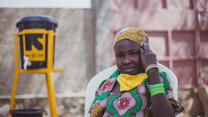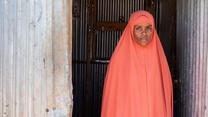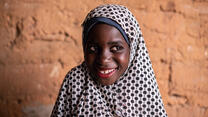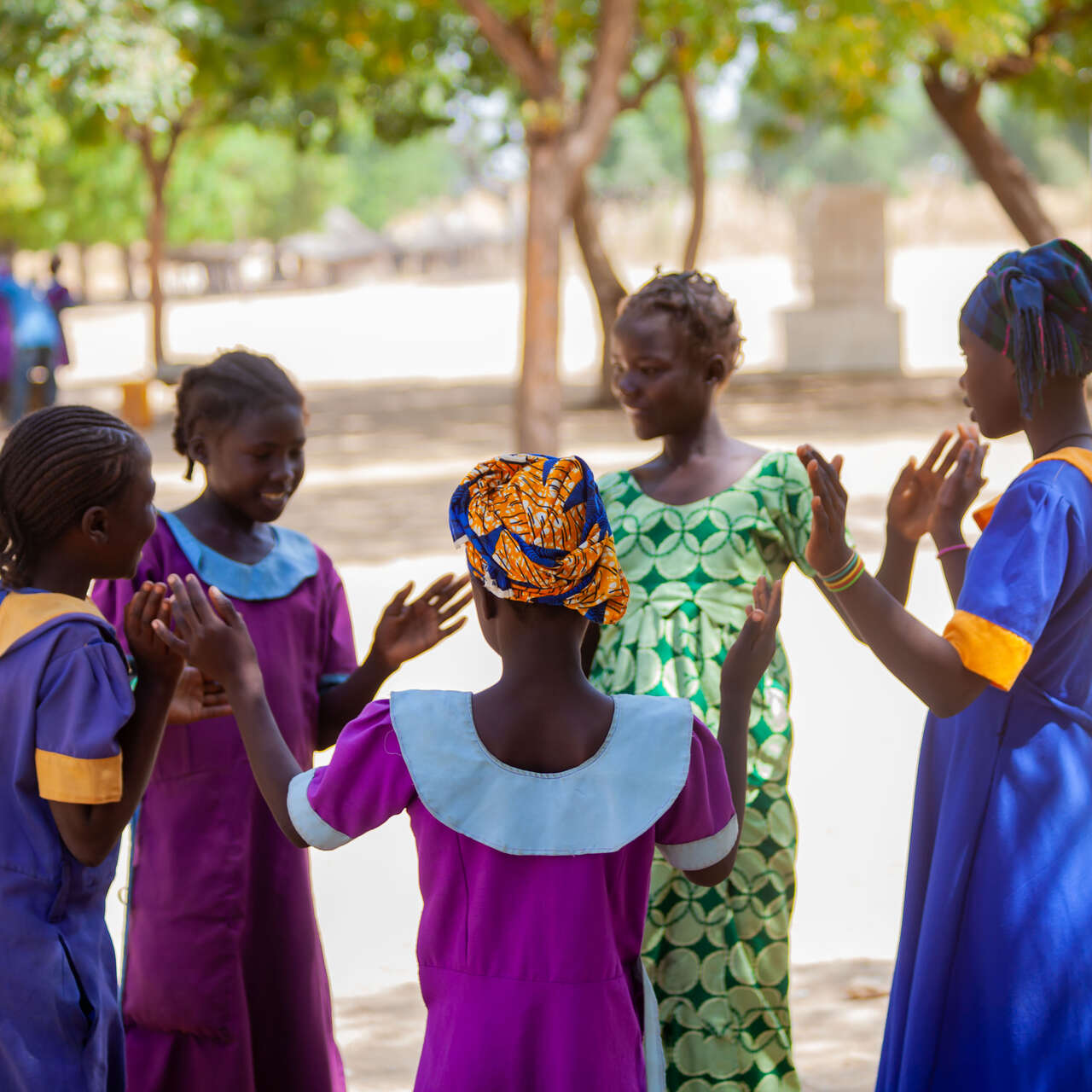
Zara Abba Boukar has a firm belief: girls living in her community have to go to school so they can go far in life.
Cameroon, where she lives today, has been dealing with on-going conflict since 2014. While hosting 503,000 refugees from neighbouring Nigeria and the Central African Republic, the country is reeling from the spillover effects from conflicts in other countries, climate shocks, and its own struggles with armed groups. Around 976,000 people are internally displaced within the country itself.
A protracted conflict, the ever-present risk of violence, and growing uncertainty has undoubtedly affected children of school-going age the most - especially those in preschool, elementary or secondary school - who often have to drop out, losing some of the most formative years of their education. Young girls are some of the most disproportionately affected in these complex humanitarian settings.
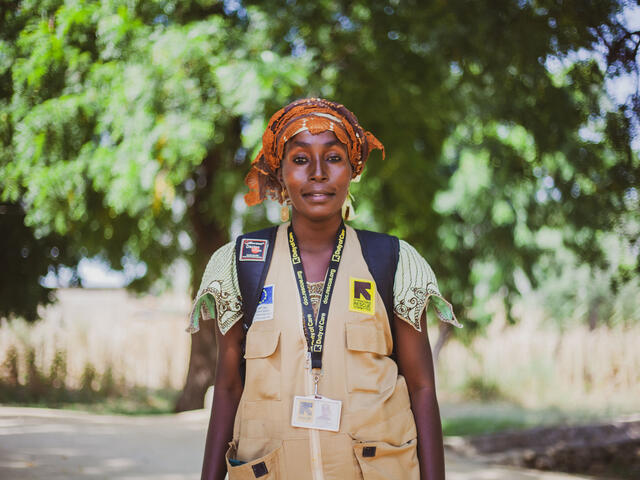
With the support of the European Union (EU), the IRC runs programs in the Far North designed to raise awareness around the importance of education. Zara, who comes from the region, is no stranger to this gender imbalance. She’s seen girls in her community get married off at young ages, and is resolute in making sure they go to school instead.
“When girls are in school, their parents won’t think of giving them out for marriage,” she explains. “But when they’re always at home, they’re always going to have problems.” Since joining the IRC in 2019 as a Community Mobiliser, Zara spends her days teaching parents and guardians in her community why education is so important for their children — and why girls deserve being in school as much as boys.
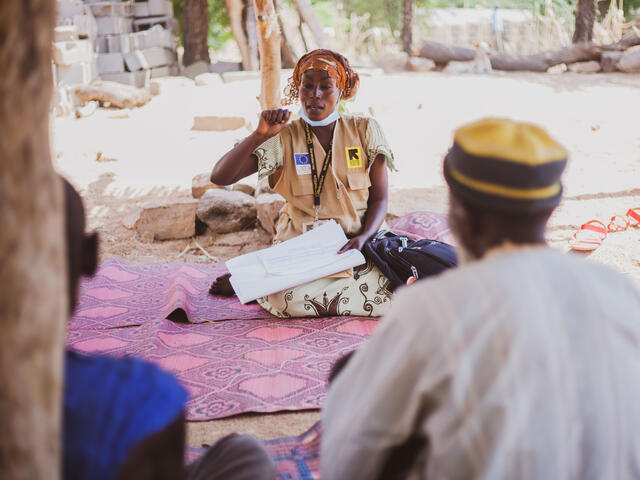
Her motivation today comes from her own past. Having faced discrimination as a girl due to the widespread belief in her community that “schooling for girls was not as profitable as them doing household chores,” her parents, too, never believed that a girl should go to school. She was 10 years old when she was enrolled in her first class. At the time, the boys in her class were far ahead of her.
Facing severe economic difficulties, they were even unable to pay her school fees one year. Feeling lost and desolate, Zara felt she had no one to support her. When her own teacher stepped in to pay her fees, he told her about how important he thought education was for her future. Another teacher visited her parents at home, and had a conversation with them about keeping her in school — and eventually sending her to college.
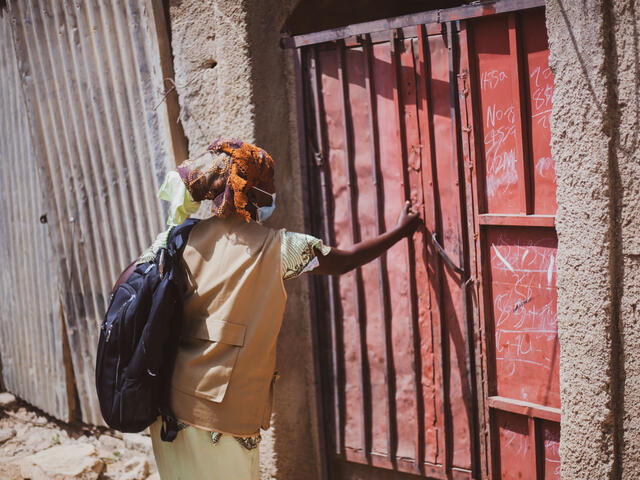
This experience put her on the path towards her dream. “All my life, I’ve always thought about becoming a teacher,” she says. Now being able to give back what was given to her, she never misses a chance to warn others about the risks of girls missing out on school.“Schools are not meant for boys alone,” she says.
Zara closely monitors class attendance rates, following up with students who stop coming to school. Along with other IRC staff, she makes frequent visits to the homes of her students. She talks with parents, grandparents, guardians, and community leaders to find out what barriers are keeping them from sending their children to school, and how the IRC can help.
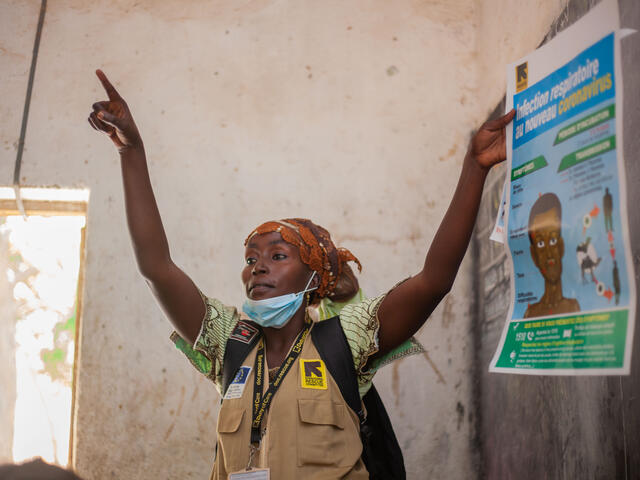
“I always start [these conversations] with the rights of a child,” she says, explaining what a typical visit looks like. “A child has the right to an education, protection, and being taken care of by the family.” Then, she delves into the benefits of education for the community at large. Much like she supports her own parents today, she tells them that children can help lift their parents out of poverty one day.
Describing the hopes she has for her students, Zara says, “If children attend school, then they can start up things like centers of information, and support their communities — what’s more, they can really participate in the socio-economic development of our country.”
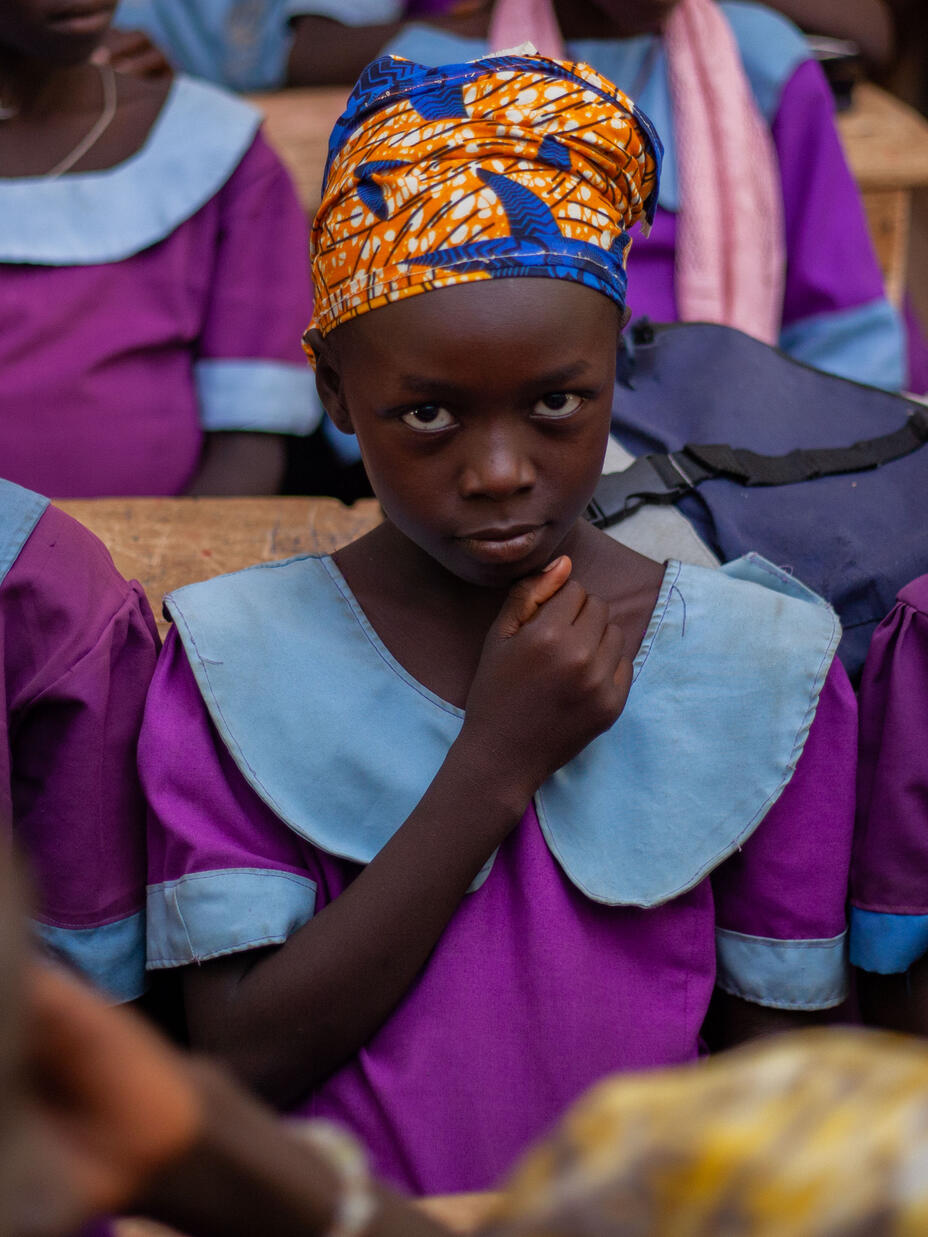
What Zara loves most about her job is how many girls she has helped get into school. With the scarcity of girls in schools before, she’s proud that she can help put them on the path towards a bright future.
She’s seen first-hand the impact her work has made, even in her own life. Beaming proudly, she says, “Now my sister will also have no problems.” She wishes for young girls in Cameroon to never stop striving for their dreams. “Today, there are female ministers and deputies,” she says, her eyes shining with passion. “Girls can become the leaders of tomorrow.”
The International Rescue Committee partners with the European Union to provide life-saving support to people caught in conflict and disasters around the world. Our work funded by the EU enables people to survive, recover and rebuild their lives.

